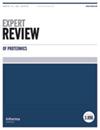How valuable can proteogenomics be in clinical breast cancer research?
IF 3.8
3区 生物学
Q1 BIOCHEMICAL RESEARCH METHODS
引用次数: 0
Abstract
Nearly, 45,000 women are estimated to die from breast cancer in 2022 in the US alone [1,2]. Breast cancer displays high heterogeneity with a wide spectrum of clinical, pathological, and molecular features, which makes it challenging for successful therapy. As we are inching toward the era of personalized medicine, advances in subtyping breast tumors have impacted prognosis and therapeutics [3]. Proteogenomics, which is an integrative profiling approach utilizing DNA, RNA, and protein data, has clearly played a critical role in illuminating the complexity of breast tumor biology, and predicting treatment response. Since DNA and RNA sequencing has gained momentum in breast cancer clinical assays including targeted mutation panel or RNA-based PAM50-based intrinsic subtyping, it is important to highlight the capabilities of integrative approaches rather than focusing on proteomics in silo. The complementation of proteomics platform provides an opportunity not just for biomarker assessment but also better quantification of targetable proteins and pathways. This methodological advancement provides an elaborate molecular landscape of breast tumors in light of treatment response and toxicity [4,5].蛋白质基因组学在临床乳腺癌研究中的价值有多大?
本文章由计算机程序翻译,如有差异,请以英文原文为准。
求助全文
约1分钟内获得全文
求助全文
来源期刊

Expert Review of Proteomics
生物-生化研究方法
CiteScore
7.60
自引率
0.00%
发文量
20
审稿时长
6-12 weeks
期刊介绍:
Expert Review of Proteomics (ISSN 1478-9450) seeks to collect together technologies, methods and discoveries from the field of proteomics to advance scientific understanding of the many varied roles protein expression plays in human health and disease.
The journal coverage includes, but is not limited to, overviews of specific technological advances in the development of protein arrays, interaction maps, data archives and biological assays, performance of new technologies and prospects for future drug discovery.
The journal adopts the unique Expert Review article format, offering a complete overview of current thinking in a key technology area, research or clinical practice, augmented by the following sections:
Expert Opinion - a personal view on the most effective or promising strategies and a clear perspective of future prospects within a realistic timescale
Article highlights - an executive summary cutting to the author''s most critical points.
 求助内容:
求助内容: 应助结果提醒方式:
应助结果提醒方式:


